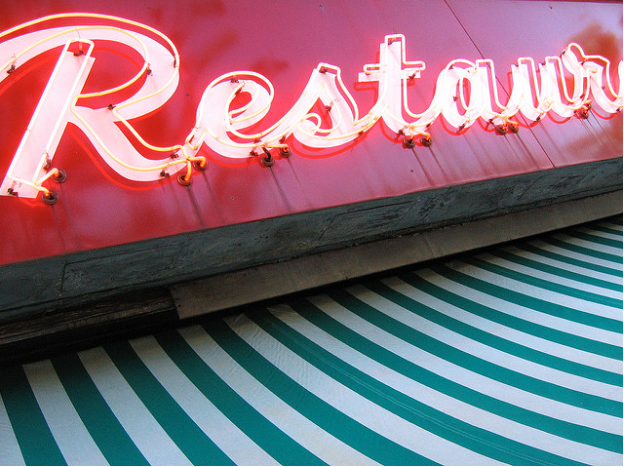
(Source: Flickr)
It’s hard to know what to expect when opening a new restaurant. Even if you’ve been involved with opening restaurants in the past, every establishment has a different story and unique process. While some experiences offer more smooth sailing than others, most journeys to opening a restaurant will include a road block (or more likely, several).
To help out with potential roadblocks you might face, this post offers ten unexpected things that you should anticipate when opening a restaurant. By reviewing this list, you will be better equipped to deal with them if and when they come along!
Why should you expect the unexpected? Opening a restaurant involves a lot of moving parts: permits, construction, menu planning, financing, to name just a few. These things require collaborative efforts, and things don’t always go completely according to plan or schedule. To a certain degree, this is just part of the process. By anticipating some of the things that can happen, though, you’ll be mentally prepared to deal with them.
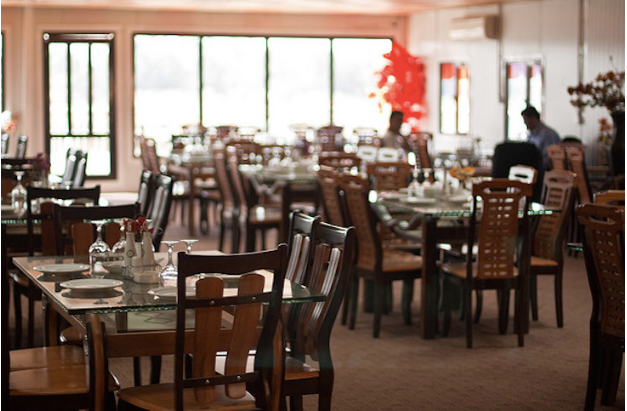
(Source: Flickr)
10 Unexpected Things To Expect When Opening a Restaurant. Here, we’ll discuss a few of the things that commonly go awry when opening a restaurant, and how to deal with them if and when they come along.
It will take longer than you think. Even if you’re meticulous about your paperwork and completely organized and on-schedule, it doesn’t mean that everyone else you deal with in the process of opening up a restaurant will be as prompt.
You will be contending with inspectors who will change your appointment time, banks that take days to process transactions and transfers, and investors with whom you find yourself playing phone tag. Unfortunately, all of this adds up to one thing: the process of opening up a restaurant is usually not always as quick as you’d like. As much as you can, try to buffer each step in the process with more time than you think you’ll need.
It will be more expensive than you think. You probably don’t want to hear this, but it’s important to know: opening a restaurant is an expensive prospect, and often, it’s more expensive than you’d expect (or than you projected to investors!). Whether it’s flooring taking longer than anticipated to install and driving up an hourly work rate, or having to scramble to bring your equipment up to code for the health department, expenses here and there can mount quickly.
Clear bookkeeping can help keep expenses in check, and remember to keep receipts–a lot of this stuff is tax deductible. Keep your investors on the same page with regular updates.
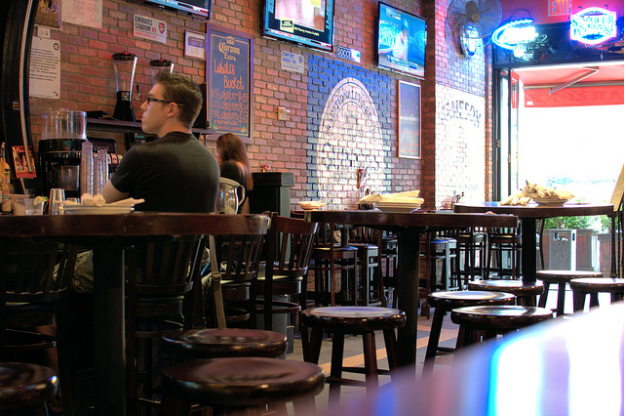
(Source: Flickr)
You might not make money right away. This is a hard fact to swallow, especially after you’ve poured your heart, soul, and likely a lot of money into opening a restaurant, but you might not earn back what you put in right away. While it’s awesome if a restaurant has a line outside from day one, this isn’t always reality.
Restaurants can take time to build up a following. By promoting yourself on social media, offering specials, and partnering up with local providers, you can increase the odds of capturing traffic and building a loyal client base. But patience is also key–with hard work, they will come.
You might have a pest problem. Rats, mice, cockroaches. Nobody wants them in their restaurants, but they are a strong possibility wherever food is being served. To ascertain the odds of such an occurrence, ask around in the neighborhood before you settle on a location; is it an area prone to pests? While the potential presence of bugs or mice alone isn’t a cause to pass on a spot, you should be more proactive if you know the area tends toward such problems, reaching out to an exterminator and making proactive steps to “pest-proof” your kitchen so that it can be clean and safe.
You might have a theft problem. As much as you want to see the best in people, one of the biggest problems in restaurants is employee theft. From pricey bottles of liquor to pocketed cash from tables, theft can add up to huge losses over time.
If theft is a problem, you may consider installing video cameras. But probably the best and most effective step is a proactive one: to take your time hiring people, and to follow up by calling their references. If they have a history of stealing in the past, you’ll know that they might not be the best employee for you.
You will have employee issues. Your employees are people, which means that they have things going on in their lives. Things are bound to come up, from mild things like an employee unexpectedly having to leave early to care for a sick child, to wild scenes like employees picking fights in the kitchen or bad blood following a failed workplace fling. Managing employees requires big-time problem-solving abilities.
By hiring a great restaurant manager, you’ll be doing the restaurant a service by having someone specifically in place to manage not only the employees but all of the daily goings-on in the restaurant.
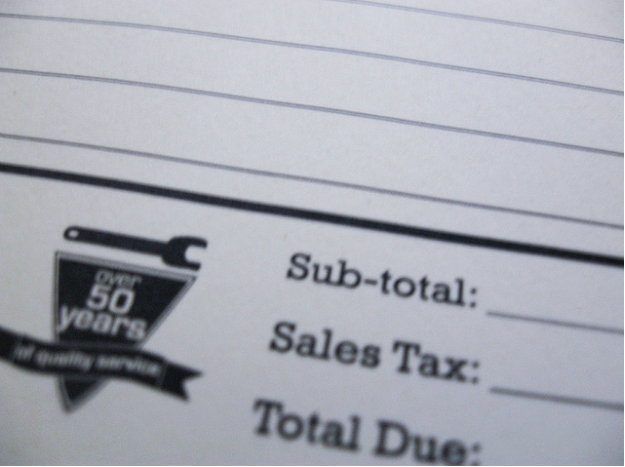
(Source: Flickr)
Things will break. Equipment will break, hot water will go out, electricity will cut out…usually, at the most inopportune times. To a certain degree, these things are unavoidable. However, there are some things that you can do to lessen the effects.
For one, be sure to have your equipment serviced regularly; this can help you avoid a lot of mechanical failures. Also, be sure to have a clearly posted list of emergency contacts, and a plan for what to do in case of electricity or water outages. You might never need to launch the emergency plan, but it’s great to have one in place.
Inspections can be costly and time consuming. Once you’re open, you’ll have to make sure your establishment is spic-and-span for routine inspections. But before you open your doors, you’ll have to contend with a bevy of inspections, which, depending on your location, might include building, sewer, fire, environmental, and kitchen inspections.
If anything doesn’t make the grade during these inspections, you’ll have to make some changes, which can be a costly prospect. Try to read up on the standards for the inspections you’ll be going through; this can help you take proactive steps to meet the criteria.
You’ll always be on call. When opening a restaurant, consider yourself on call. Definitely once the doors open, but even beforehand, too. If a water pipe breaks while the early construction crew is working on your buildout, or a delivery requires that someone be present from 2-4 pm, appointments that change or fluctuate. While your schedule may have some flexibility, you won’t have much time “off”. Be prepared, because this will last from pre-opening until the end of your time at the restaurant.
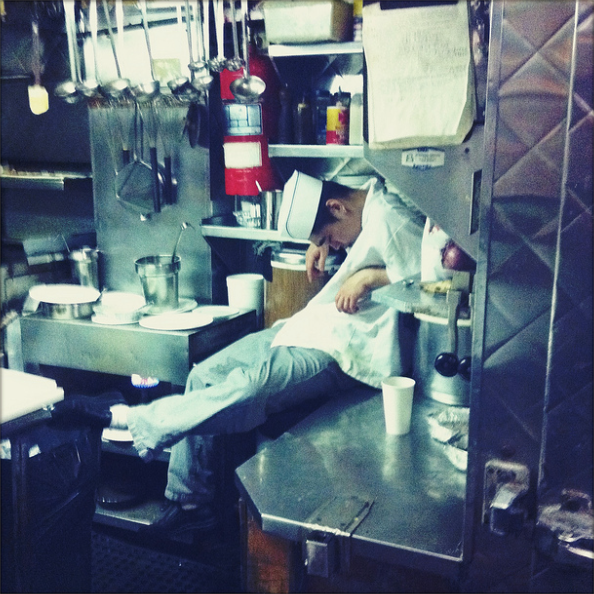
(Source: Flickr)
You’ll be tired. This is one of the biggest guarantees when opening a restaurant: you’ll be tired. Bone-tired exhausted. Opening a restaurant is an extremely demanding process which takes you out of a scheduled and structured lifestyle. Planning, coordinating, working with a huge variety of personality types–it’s exhilarating, but it takes a toll.
Be sure to incorporate self-care into your routine, whether it’s a twice-weekly workout at the gym or a night out with your family. It may not be easy to do, but it is worth finding the time; investing in yourself is also an investment in the success of your business.
Conclusion: Opening a restaurant is not for the feint of heart. There are a lot of hoops to jump through before you can open the doors to the public. By anticipating these “unexpected” aspects of opening a restaurant, you’ll have a leg up on the process and it might just be a little easier on you. The rewards to be reaped are huge: opening your restaurant doors for the first time is a feeling like no other.
What was the most surprising part about opening a restaurant for you?


